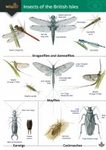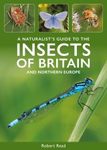![Ecological and Environmental Physiology of Insects Ecological and Environmental Physiology of Insects]()
Click to have a closer look
About this book
Contents
Customer reviews
Biography
Related titles
About this book
Insects are the most ecologically important multicellular heterotrophs in terrestrial systems. They play critical roles in ecological food webs, remain devastating agricultural and medical pests, and represent the most diverse group of eukaryotes in terms of species numbers. Their dominant role among terrestrial heterotrophs arises from a number of key physiological traits, and in particular by the developmental and evolutionary plasticity of these traits.
Ecological and Environmental Physiology of Insects presents a current and comprehensive overview of how the key physiological traits of insects respond to environmental variation. It forges conceptual links from molecular biology through organismal function to population and community ecology. As with other books in Ecological and Environmental Physiology of Insects, the emphasis is on the unique physiological characteristics of the insects, but with applications to questions of broad relevance in physiological ecology. As an aid to new researchers on insects, it also includes introductory chapters on the basics and techniques of insect physiology ecology.
Contents
1: Introduction
2: Basic insect functional anatomy and physiological principles
3: Temperature
4: Water
5: Nutrition, growth, and size
6: Oxygen
7: Techniques and applications
8: Conclusions and future directions
References
Index
Customer Reviews
Biography
Jon Harrison is a Professor of Life Sciences at Arizona State University, where he is also Director of Research Infrastructure and Facilities and an AAS Fellow. He has been studying the ecological and evolutionary physiology of insects since 1982, earning his PhD from the Univ. of Colorado, Boulder. His ecophysiological research interests have included lizards, grasshoppers, bees, caterpillars, beetles, cockroaches, dragonflies, and fruit flies, with primary emphases on the metabolic, respiratory, and nutritional physiology of insects.
Art Woods is an Associate Professor at The University of Montana. He earned his PhD from The University of Washington in 1998 and has been studying insects ever since. He is interested in diverse aspects of insect physiology and ecology, and more recently in how insects interact with their host plants. His current work focuses on interactions between Manduca sphinx moths and their host plants in the American Southwest.
Stephen Roberts is Professor and Chair of Biology at Central Michigan University. He has been studying insect physiology since 1990, earning his PhD from Arizona State Univ. He has studied grasshoppers, bees, and fruit flies to address basic questions about thermoregulation, thermotolerance, flight energetics, biomechanics, and aging in insects.
By: Jon F Harrison(Author), Arthur H Woods(Author), Stephen P Roberts(Author)
378 pages, b/w photos, b/w illustrations
"If you are seriously interested in how the environment affects insects, and want to understand this process at a mechanistic level, you should own this book."
– Spencer T. Behmer, Ecology







































